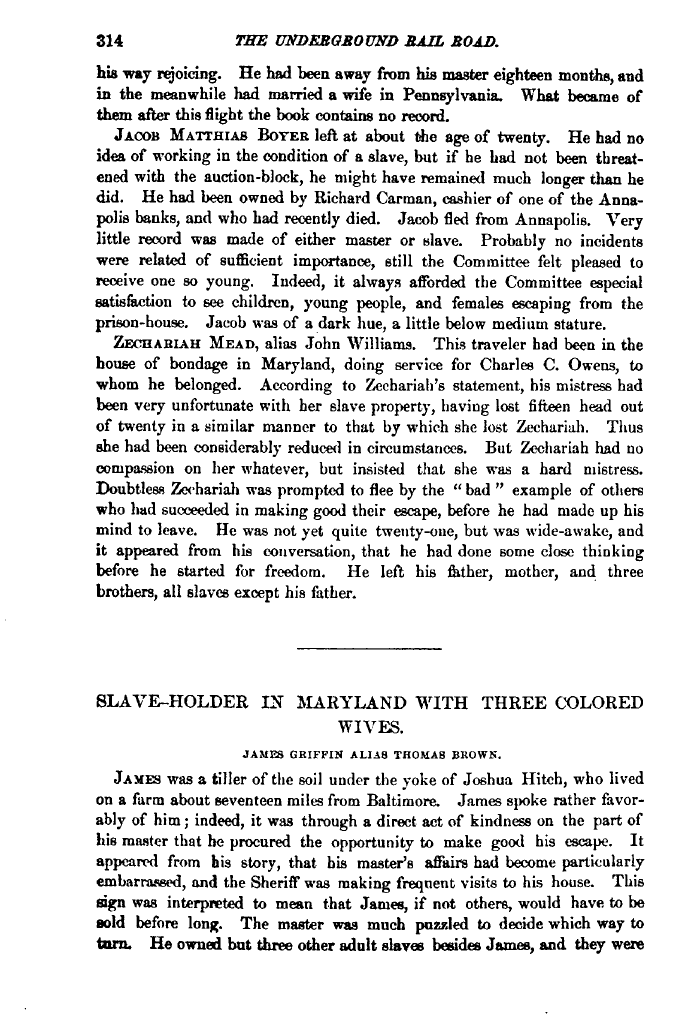 |
||||
 |
||||
| 314 THE UNDEBQBOUND BAIL BOAD. his way rejoicing. He had been sway from his master eighteen months, and in the meanwhile had married a wife in Pennsylvania. What became of them after this flight the book contains no record. JACOB MATTHIAS BOYEE left at about the age of twenty. He had no idea of working in the condition of a slave, but if he bad not been threatened with the auction-block, he might have remained much longer than he did. He had been owned by Richard Carman, cashier of one of the Annapolis banks, and who had recently died. Jacob fled from Annapolis. Very little record was made of either master or olave. Probably no incidents were related of sufficient importance, still the Committee felt pleased to receive one so young. Indeed, it always afforded the Committee especial satisfaction to see children, young people, and females escaping from the prison-house. Jacob was of a dark hue, a little below medium stature. ZECHABIAH MEAD, alias John Williams. This traveler had been in the house of bondage in Maryland, doing service for Charles C. Owens, to whom he belonged. According to Zechariah's statement, his mistress had been very unfortunate with her slave property, having lost fifteen head out of twenty in a similar manner to that by which she lost Zechariah. Thus she had been considerably reduced in circumstances. But Zcchariah had no compassion on her whatever, but insisted that she was a hard mistress. Doubtless Zeohariah was prompted to flee by the " bad " example of others who had succeeded in making good their escape, before he had made up his mind to leave. He was not yet quite twenty-one, but was wide-awake, and it appeared from his conversation, that he had done some close thinking before he started for freedom. He left his fether, mother, and three brothers, all slaves except his father. SLAVE-HOLDER IN MARYLAND WITH THREE COLORED WIVES. JAMES GRIFFIN ALIAS THOMAS BROWN. JAMES was a tiller of the soil under the yoke of Joshua Hitch, who lived on a farm about seventeen miles from Baltimore. James spoke rather favorably of him; indeed, it was through a direct act of kindness on the part of his master that be procured the opportunity to make good his escape. It appeared from bis story, that bis master's affairs had become particularly embarrassed, and the Sheriff was making freqnent visits to his house. This sign was interpreted to mean that James, if not others, would have to be sold before long. The master was much puzzled to decide which way to torn. He owned bat three other adult slaves besides James, and they were |